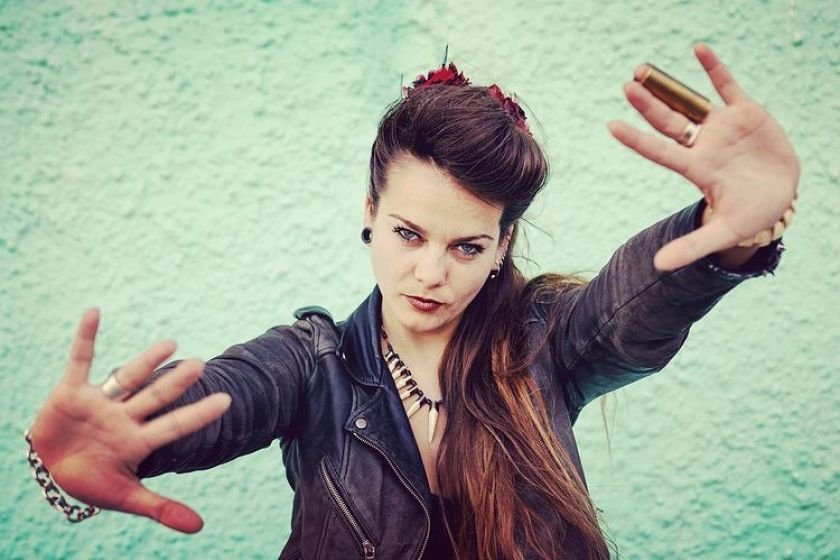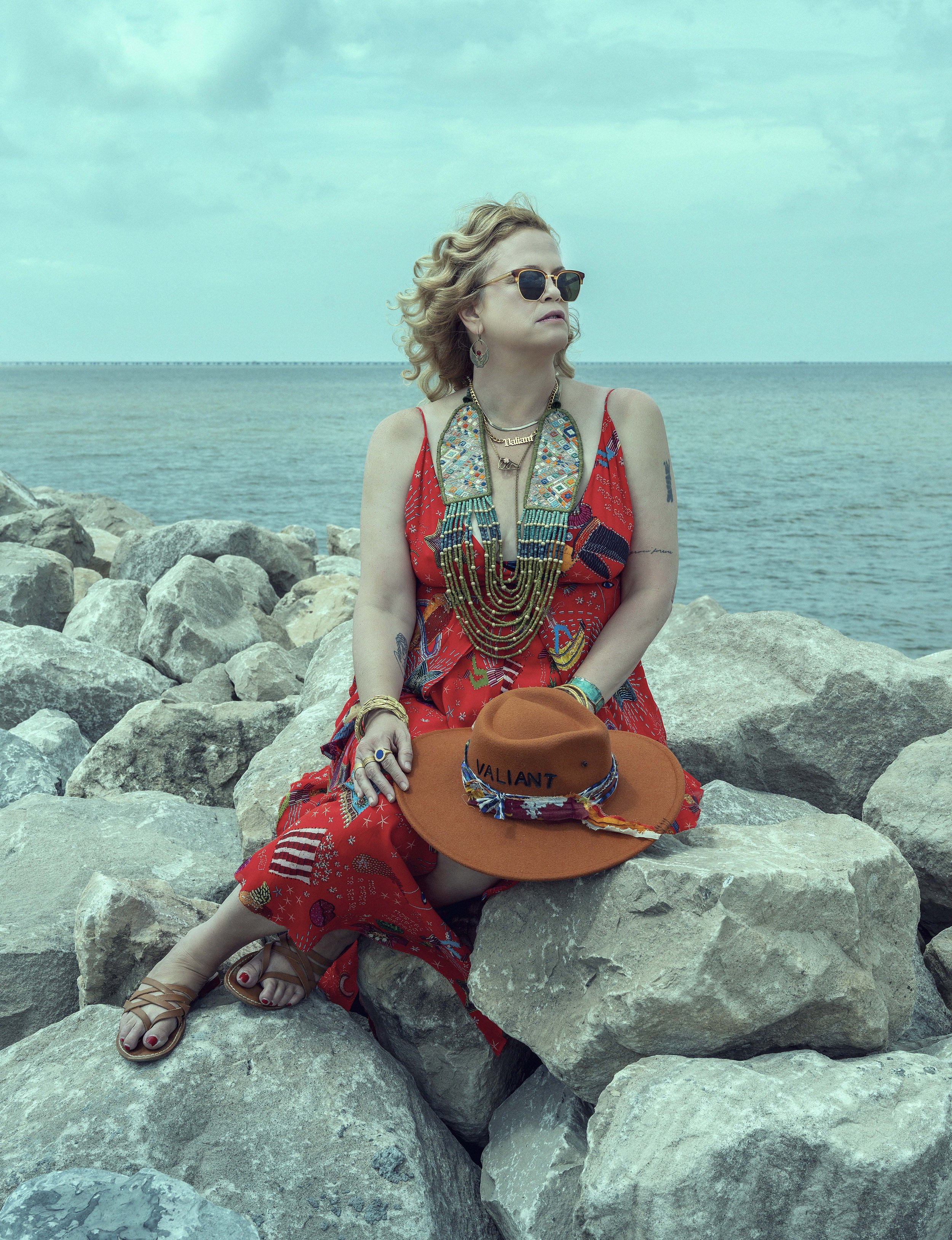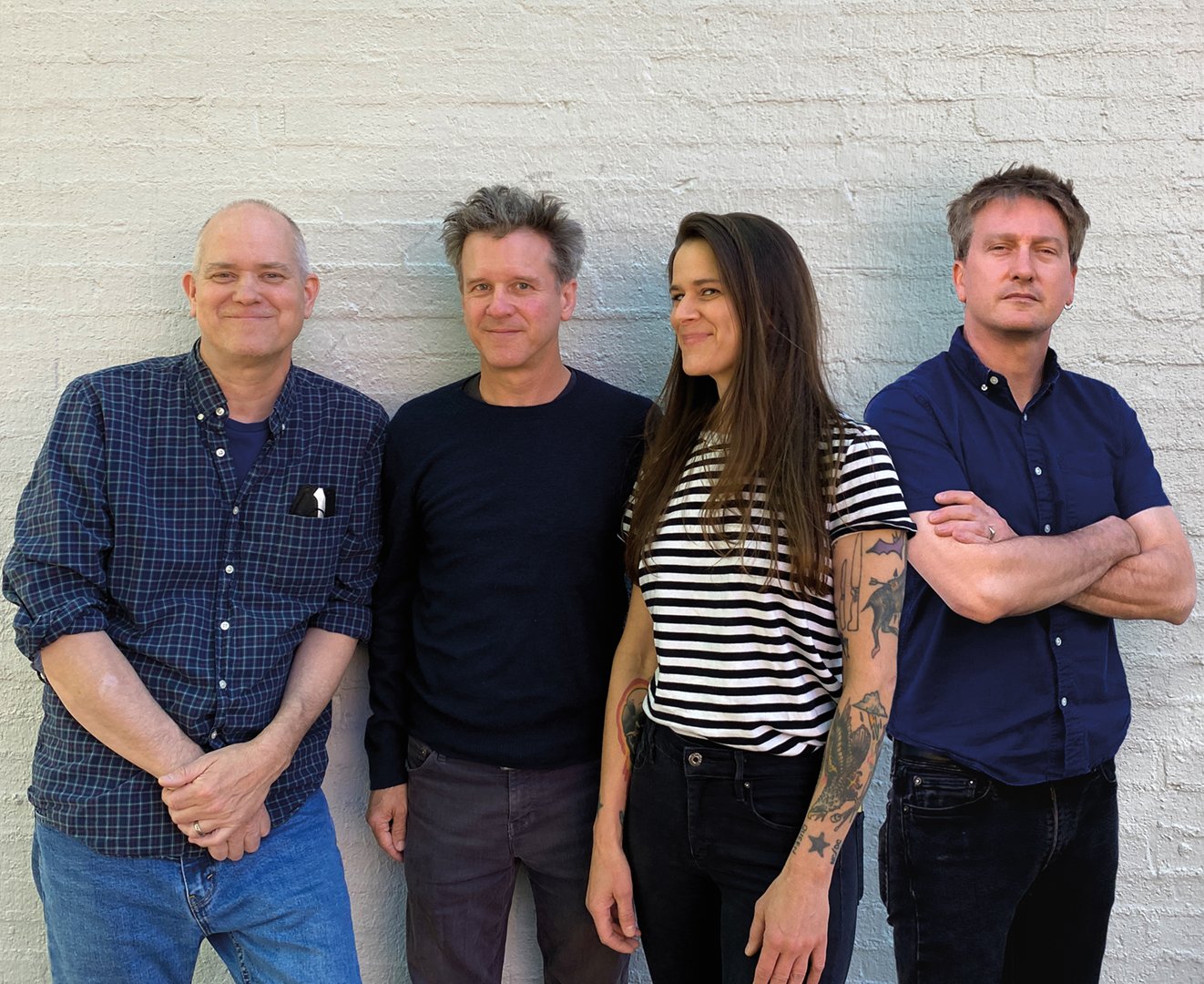Ghalia Volt Traces her Journey to the Blues

Ghalia Volt, by Kaylie McCarthy
On the eve of the release of “Shout Sister Shout!,” the singer/songwriter explains how she got from punk rock in Belgium to the blues in New Orleans.
When 60 Minutes decided to do a segment on the state of the blues, Ghalia Volt was among the musicians they focused on. The native Belgian now living in New Orleans was there as to show the music’s compelling nature. “Diggin' and diggin', trying to find what's the real roots of the music I used to listen to until I got caught,” she told reporter Jon Wertheim.
In the segment, Volt appears as a one-woman band, which is the title and concept of her 2021 album. On Saturday night, she’ll be back in New Orleans to play an album release show at Chickie Wah Wah for Shout Sister Shout, which she recorded this year at Rancho de La Luna in Joshua Tree with Dave Catching. He made his name working with Queens of the Stone Age and Eagles of Death Metal, but the results aren’t as heavy as that pedigree might suggest. Catching helps Volt bring her sonic presentation in line with her style, which means the distortion on her guitar is sharpened up until it sound like raw electricity, and the band behind her allows the songs to breathe and groove naturally. The results sound like they come from someone who loves the blues without being boxed in by them. That makes sense considering her path to the blues.
My Spilt Milk recently interviewed Volt by email.
What was the music that made you want to play music in the first place?
The first time I grabbed a guitar it was to play punk music, just blasting power chords playing The Sex Pistols, or Patti Smith, The Clash, the Cramps, then I got into ‘50s rock 'n' roll and found out about rhythm & blues and blues.
In your mind, what’s the connection between punk and the music you’re making now?
The raw edges. The organic feel to the music. Rancho de La Luna studio was home base for rock 'n' rollers and punk artists. I personally don't try to label my music. It just comes naturally, influenced by my background. But I do believe that "punk" is not just a music genre. It's a "perspective," how you approach music, but also life, society standards. Hill country Blues or even Rap to me can have a "punk" connotation.
When you moved to the States, you spent time in cities that have played important roles in the blues, R&B or American roots music. What did you expect to find there? Did they still live up to their reputations in the 2000s?
I did. A pilgrimage. The goal was to visit all those cities and towns in the songs I listen to.
Some are overrated, some have changed. But I wasn't here 40 years ago to compare. All those musical meccas have been very inspiring to me for different reasons. The deep South is rich in culture and the level is really high, regarding the music quality. As a musician, you'll be challenged and forced to grow quickly.
What brought you to New Orleans?
Starting point of the pilgrimage I first did when I was 21. So many great songs written here, mythical bands. It wasn't comparable to any other city I visited although, I enjoyed Austin, Nashville, Memphis, Chicago, St. Louis and the entire state of Mississippi.
New Orleans is different and unique. I didn't plan on moving here; it just happened.
What did you learn working as a one-woman band?
Being able to reinvent ourselves as musicians is very important. At a technical point, my pocket (groove) is more solid now after being my own rhythm section.
But mainly what I learned is more of a work ethic. It's all implied in the title. For the last three years, I did the booking, the driving, the writing, the playing, the packing and unpacking, booking hotels along the roads, networking, everything.
Why record these songs with a band?
One Woman Band was a project. An album. You tour and introduce the album to the world. Now is the beginning of a new adventure. I'm not saying there'll never be another One Woman Band album or tour, but for now, I'm ready for the next adventure. I missed the band interaction and sound.
One Woman Band has limitations. I find it easier to express myself with the band.
Creator of My Spilt Milk and its spin-off Christmas music website and podcast, TwelveSongsOfChristmas.com.






